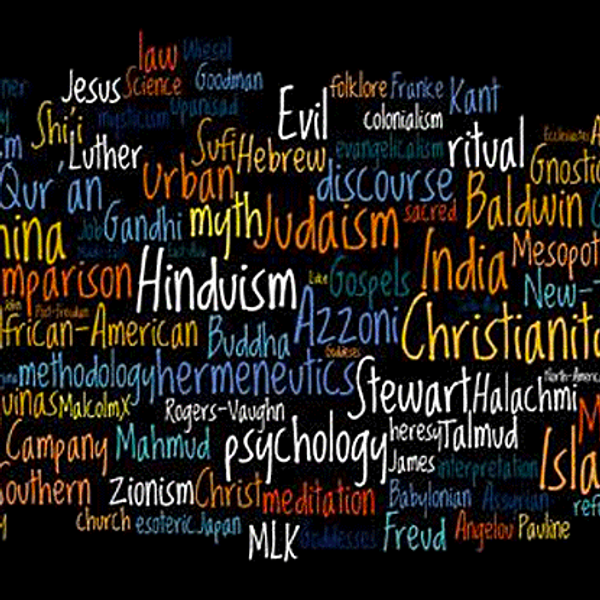All throughout high school I wanted to major in music. Due to ensuing circumstances, this ended up not happening. However, I remember well my parents giving me lectures about how majoring in music wasn't "practical" and how it would never give me jobs and what not, a talk that many young musicians have to suffer through at one point or another.
After I enrolled at Eastern Michigan University with ambitions of becoming an English teacher and, later on (hopefully) a professor, I came to my parents and said, "I think I want to get a minor in religious studies."
"Religious studies?!" they were shocked. Somehow I'd managed to come up with something even less "practical" than music.
With the ridiculous cost of higher education and the immense pressure on college grads to find internships, jobs, apprenticeships, ect. it seems that the concept of education meaning something beyond job training may seem foreign to some. To me, this is very sad. Too often we find ourselves asking, "when am I going to use geometry, or literature, or history, or world religions. I, as an aspiring academic, find these questions incredibly annoying, but because our idea of "an education" is derived not from a desire for cultivation of knowledge but for the cultivation of money, this becomes a legitimate query. I think we need to revamp our understanding of what an education is for and what role it plays in our lives. Education can and should prepare you for a future career, but it should also teach you to learn. Not only that, but it should teach you to love to learn. It should expose you to fields of study that explore the human expirience in ways that you hadn't thought possible.
And that's why I minor in religious studies.
A scholar once said that the philosophy of science is as of use to scientists is as the use of ornithology to birds. Jack Miles, the editor of the Norton Anthology of World Religions, postulates that the same might be said of religious studies for religious practitioners. Things like the sociology of religion, the anthropology or religion, history of religion, and the like, aren't conducive to becoming a chaplain, or pastor or Rabbi, they approach religion in a more objective, rigorous way. Some might say, it analyzes religion rather than seeking to experience it. I think this is an unfair distinction. Hear me out.
Religion is often set up against science in a lot of circles as two, opposing ways of understanding the world (*cough* Ken Ham and Bill Nye *cough*), but I think this is an unfair comparison. Things like science, psychology, and philosophy, seek to understand our position through empirical observance, experiments, and statistics, facts of the world around us. Religion tries to understand our position through something less clear, something that by nature is mystical and intuitive; attempting to connect us to a higher reality that is simultaneously beyond words and a universal experience across cultural and geographical divides.
Religion appreciates reality in a similar way to arts like music, painting, and dance. You can't for sure say what a Mahler symphony, a Jackson Pollock painting, or a beautifully choreographed dance is about, but you feel what it's about. It cannot be put into an explainable box, but I challenge anyone to say that a piece of art hasn't moved them in that way. This feeling is what draws us towards religion. No one was ever convinced to take up Christianity or Buddhism or Islam because of empirical reasoning, it's a feeling, a calling, an attractive force, and studying how that force has attracted people in the past and how that's lead to many magnificent hypothesis about what this life is for is, to me, more rewarding than a more "practical" academic field could ever be.
I know this is a cheesy and cliche comparison, but I'm reminded of Robin Williams' character in the movie Dead Poet's Society who says, "medicine, law, business, engineering, these are noble pursuits and necessary to sustain life. But poetry, beauty, romance, love, these are what we stay alive for."
Education, I think should tap into both of those things. Our current system does more or less a fine job of teaching us skills to sustain our lives, but hopefully we'll be able to more appreciate the things that we live for.





















